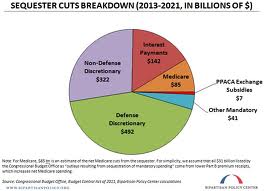My piece on the nursing shortage myth received more than 100 comments when it was reposted on the Health Care Blog a year ago. My basic theme was as follows:
My piece on the nursing shortage myth received more than 100 comments when it was reposted on the Health Care Blog a year ago. My basic theme was as follows:
 There’s a well-established narrative that there is a large and growing shortage of nurses
There’s a well-established narrative that there is a large and growing shortage of nurses- Evidence to the contrary –such as difficulty of new nursing graduates finding jobs– is dismissed by nursing shortage cheerleaders with two arguments: 1) experienced nurses come back into the workforce when there’s a recession, and 2) demand will explode over time as older nurses retire and baby boomers age
- These arguments don’t hold much water and I am not particularly worried that the country will run short of nurses
- Many of those predicting a looming nursing shortage have a vested interest in doing so because they are involved in the business of running nursing schools
It seems like I could re-write that blog post every year or so, because there always seems to be a new story acknowledging the current surplus of nurses but predicting a giant shortage in the future. I wrote a similar post a year earlier, for example.
Today I read another story about the so-called nursing shortage in HealthLeaders (New Nurses Report Tougher Job Market):
“The economic recession may be to blame for a downturn in demand for newly licensed registered nurses, suggests a survey from the Robert Wood Johnson Foundation. The lead author speculates, however, that demand will grow stronger as healthcare reform is implemented.”
The author – a professor of nursing – says the problem is the recession. Then she adds that older nurses are going to retire and the Affordable Care Act is going to boost opportunities. “The opportunities for nursing are going to be humongous,” she concludes.
As before, I have my doubts:
Workforce projections rarely take into account long-term technological change, but simply assume that nurses will be used as they are today. I’ve taken heat for writing that robots will replace a lot of nurse functions over time. People seem to be offended by that notion and have accused me of not having sufficient appreciation for the skills nurses bring.
So let me try a different tack. Think about some of the job categories where demand is being tempered by the availability of substitutes. Here are a few I have in mind that have similar levels of education to nurses:
- Flight engineers. Remember when commercial jets, like the Boeing 727 used to fly with two pilots and a flight engineer? Those planes were replaced by 737s and 757s that use two member flight crews instead
- Junior lawyers and paralegals. Legal discovery used to take up many billable hours for large cases. Now much of it is being automated
- Actuaries. Insurance companies used to hire tons of them, but their work can be done much more efficiently with computers
I don’t hear visionary leaders of provider organizations banging the drum about a nursing shortage and clamoring for more grads. And if somehow I’m wrong and demand rises, the problem can be solved with a more welcoming immigration policy.
Like I wrote before, “If you want to be a nurse, go for it. But if you’re choosing nursing because you think it’s a path to guaranteed employment, think again.”

 There’s a well-established narrative that there is a large and growing shortage of nurses
There’s a well-established narrative that there is a large and growing shortage of nurses



